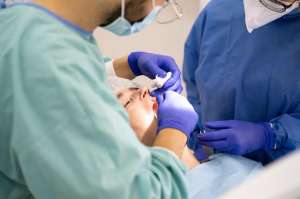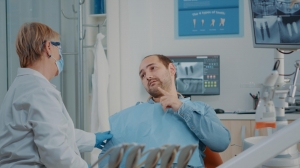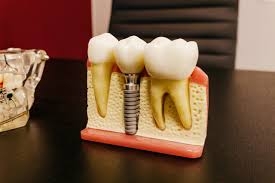Let's talk about wisdom teeth. You've probably heard about them, perhaps even dreaded the idea of getting them removed. But here's the thing – they're a normal part of life, and for most of us, getting them taken out is a pretty routine procedure. If you're wondering whether to have yours removed or what the process involves, here's a simple guide to help you out.
When Do You Need to Have Wisdom Teeth Removed?
Not everyone needs their wisdom teeth removed. However, for many, they can lead to trouble down the road. Here are some reasons why your dentist or oral surgeon might suggest removal:
Impaction
Wisdom teeth can get stuck under the gum, and when they don't have enough space to fully emerge, they can cause pain, infection, or other dental problems.
Infection or Decay
Sometimes, the tooth doesn't fully break through the gums, which makes it a perfect place for food particles and bacteria to get trapped. This can lead to infection and gum disease.
Crowding
If your wisdom teeth grow in at the wrong angle or without enough space, they can push on nearby teeth, potentially causing teeth to become crooked or overlapped. This can lead to discomfort, jaw pain, and difficulty chewing.
Cysts or Tumors
In rarer cases, wisdom teeth can cause cysts or tumors that might harm the surrounding teeth and bone. Early removal can prevent these bigger issues from developing.
If you're unsure whether your wisdom teeth need to be removed, your dentist can guide you with X-rays and a quick exam.
Why You Shouldn't Wait to Get Them Removed
Delaying wisdom teeth removal can lead to complications. Here's why it's better to address the issue sooner rather than later:
Avoid Complications
Early removal can prevent infection, misalignment, or damage to other teeth.
Reduce the Pain
If your wisdom teeth are already causing discomfort, removing them sooner can prevent the pain from worsening.
Faster Recovery
Younger patients tend to heal faster after surgery, so it's better to get them removed earlier, ideally in your late teens or early twenties.
What Does the Procedure Actually Involve?
The idea of surgery can be intimidating, but wisdom teeth removal is a routine procedure. Here's what to expect:
The Consultation
Your oral surgeon will examine your teeth and take X-rays to determine the best approach for extraction. This is your chance to ask any questions about the procedure.
The Surgery
You'll be given anesthesia depending on your comfort level and the number of teeth being removed. The surgeon will make small incisions in the gums to remove the teeth, which typically takes about 30 minutes to an hour.
Post-Procedure
After surgery, you'll rest in the recovery area until you're good to go home (with a friend or family member driving you, of course!). You'll be given some tips and instructions for how to take care of yourself once the anesthesia wears off.
The Recovery
The recovery period after wisdom teeth removal varies from person to person, but it's not as bad as you might think! Here's what you can expect and how to make the process smoother:
First Few Days
You might experience swelling, bruising, or mild bleeding, all of which are normal. Applying ice packs to your face during the first 24 hours can help reduce swelling.
Pain Management
Over-the-counter pain relievers usually manage pain well, but your surgeon might prescribe stronger medication if needed.
Soft Foods
Stick to soft foods like mashed potatoes, smoothies, or soup for the first few days. Avoid crunchy or chewy foods to prevent irritation.
Rest
Your body needs time to heal. Take it easy and avoid strenuous activities. Rest is key to helping your body heal faster.
Keep the Area Clean
Gently rinse your mouth with warm salt water after 24 hours to help keep the extraction sites clean. Avoid brushing directly on the area for a while, but keep brushing the rest of your teeth.
Don't Smoke or Use Straws
Smoking and drinking through straws can dislodge the blood clots at the extraction site, which can lead to a painful condition called dry socket. Trust us – you don't want that! Avoid these habits for at least a week.
Summing Up
Wisdom teeth removal might seem like a hassle, but in reality, it's a common procedure that can save you from a lot of future pain and dental problems. Taking care of your wisdom teeth when needed helps you avoid discomfort and maintain a healthy, happy smile for years to come. If you're experiencing issues with your wisdom teeth, don't wait too long to consult an oral surgeon. The sooner you get the information you need, the better!
Thank you for reading. This article was written by Anna Naim at Third Loft Marketing.






